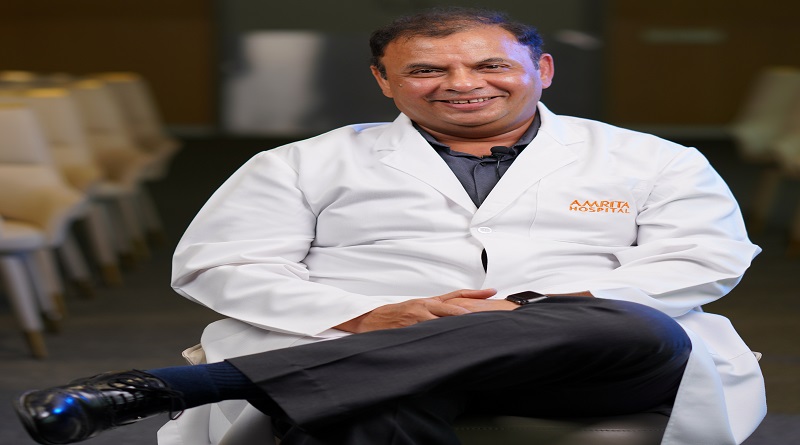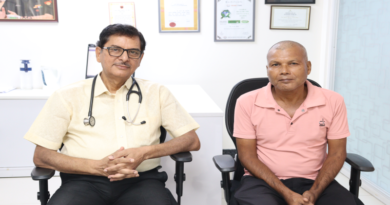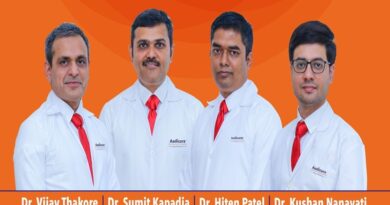Denied Treatment Elsewhere, Three Women Beat the Odds After High-Risk Heart Surgeries at Amrita Hospital, Faridabad

~ One woman’s heart had grown four times its normal size, another was too frail for surgery, and the third was told she wouldn’t survive the procedure. All three are now recovering.
~ Cases spotlight the urgent need to re-evaluate how India approaches cardiac care in women and underserved populations
May, 2025: In an extraordinary medical intervention, Amrita Hospital, Faridabad, successfully treated three women battling life-threatening heart conditions—after they were denied treatment by major hospitals due to the complexity and risk associated with their cases.
The patients included 60-year-old Santosh Yadav, 61-year-old Roofia Parveen Khan, and 28-year-old Indu Kumari, a tribal woman from a remote village in Jharkhand. All three were suffering from advanced heart valve disease and were deemed “inoperable” due to age, frailty, financial barriers, or comorbidities.
When the Heart Grows Too Big to Beat—But Still Fights Back
The most dramatic case was that of Indu Kumari, whose heart had expanded to nearly four times its normal size after years of untreated rheumatic heart disease. Barely able to breathe, weighing just 35 kg, and in advanced heart failure, she had been turned away from surgery five years ago due to lack of funds and access.
When she arrived at Amrita Hospital this April, her condition had deteriorated to the point of imminent collapse. Her left atrium was severely enlarged, and she was in atrial fibrillation, a life-threatening irregular heartbeat.
A multidisciplinary team led by Dr. Sameer Bhate, Head – Cardiac Surgery, decided to go ahead with a high-risk surgical plan. They replaced her damaged mitral valve, repaired the tricuspid valve, and performed a Maze procedure to restore her heart rhythm. Though she went into cardiac shock post-surgery, her heart made a remarkable recovery, improving from 25% to 55% ejection fraction—a near-normal heart function—by the time of discharge.
Due to her remote location and inability to access regular blood testing, doctors chose to implant a tissue valve instead of a mechanical one. The surgery was made possible under the Ayushman Bharat scheme.
“We didn’t just see reports—we saw a young woman on the edge of survival,” said Dr. Bhate. “She didn’t need a perfect solution, she needed a second chance at life. That guided our decision-making.”
Second Chances for Santosh and Roofia
For Santosh Yadav and Roofia Parveen Khan, the challenge was different—but equally daunting. Both were suffering from severe double valve disease and were turned away by multiple hospitals citing high surgical risk. At Amrita Hospital, the cardiac team reviewed their cases in detail, weighed the risks, and decided that surgery was not only possible—it was necessary.
Both women underwent successful valve replacement surgeries and are now recovering well.
“Three hospitals said I wouldn’t survive. But the doctors here gave me hope, explained everything clearly, and treated me like a person—not just a patient,” said Santosh.
Roofia, who could barely walk or breathe before her surgery, said: “This place didn’t just treat my heart—they treated me with dignity and gave me back my life.”
Looking Beyond Risk Scores and Redefining Cardiac Care
Women in India remain significantly underdiagnosed and undertreated when it comes to heart disease. According to the Global Burden of Disease Study, cardiovascular disease is the leading cause of death among Indian women, accounting for nearly 18% of female deaths. International research shows that women are often referred less frequently for cardiac interventions and are 50% more likely to be misdiagnosed during a heart attack.
“In all three of these cases, risk scores and comorbidities painted a grim picture,” said Dr. Bhate. “But we chose to look beyond the data. We considered their will to survive, their families’ hopes, and the moral responsibility we carry as doctors. Sometimes, medicine isn’t just about what’s in the textbook—it’s about humanity.”





